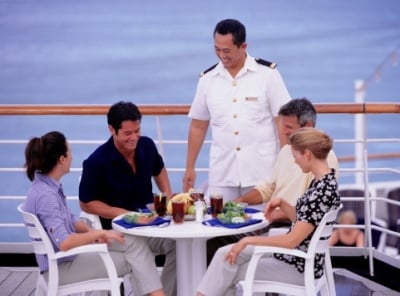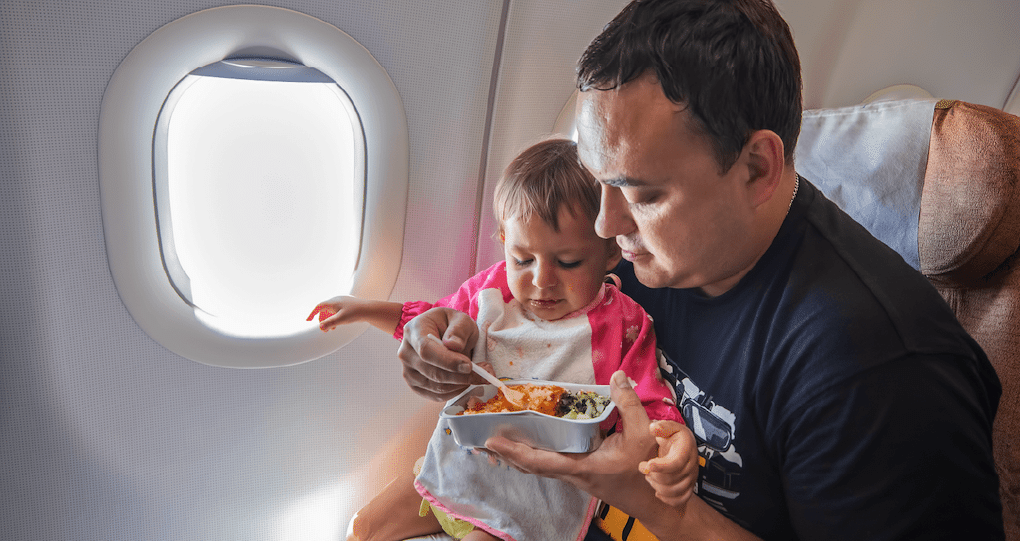If you’ve ever wondered, “why food allergy happens?“, you’re not alone. Food allergies occur when your immune system mistakenly identifies certain foods as harmful. These can cause a variety of symptoms, from mild discomfort to severe, life-threatening reactions. But, is food allergy dangerous? Yes, it can be. But with careful planning, especially while traveling, it’s entirely manageable.
As your trusted companion in travel, Esanchar is here to guide you on navigating food allergies while traveling, ensuring that your journey is as smooth and enjoyable as possible.
Understanding Food Allergies

Firstly, it’s essential to understand how food allergy occurs. When you consume food your body is allergic to, your immune system overreacts, causing symptoms such as hives, wheezing, or more severe reactions like anaphylaxis. It’s crucial to understand what triggers food allergies, which commonly include peanuts, tree nuts, milk, eggs, wheat, soy, fish, and shellfish.
A common question many people have is, “Can food allergy be cured?“. Currently, there’s no cure for food allergies. The best way to manage them is by avoiding the allergen and knowing how to treat allergic reactions.
Preparing for Your Trip

Before setting off, it’s essential to prepare and take some precautions. If you’ve wondered, “How food allergy testing is done?“, it is usually through skin tests or blood tests. Getting tested before you travel is recommended so you know what to avoid.
Remember, different countries have different culinary practices and ingredients. Research your destination’s typical foods to identify potential allergens. Also, learn how to express your allergies in the local language or carry allergy translation cards.
You may ask, “Is food allowed on international flights?” or “Are food items allowed in domestic flights?” Yes, airlines often allow passengers to bring their food, which can be a lifesaver for those with food allergies. Pack your snacks, and consider meals that don’t need refrigeration.
Food Choices While Traveling

Picking the right food while travelling can be a game-changer. Opt for meals with simple, whole ingredients. As they say, “The fewer the ingredients, the better!”
Foods to avoid for wheezing, a common symptom of food allergies, include dairy, processed foods, and certain fruits and vegetables. Be vigilant about your food choices to keep wheezing at bay.
As for food items to carry while travelling, consider allergy-friendly snacks like fruits, vegetables, gluten-free crackers, or nut-free protein bars. If you’re wondering “which food allowed in flight?“, it’s best to check with your specific airline as policies can vary.
You may be surprised, but even in a different country, can you get allergies from traveling? The answer is yes, as allergens can be found anywhere and in any form, including in the food you eat.
Traveling Abroad with Food Allergies

Traveling abroad with food allergies might seem daunting, but it’s entirely possible with careful planning. Firstly, communicate your allergies to your travel agent. At Esanchar, we can help arrange your trip, keeping your dietary needs in mind.
It’s important to remember that are food items allowed in international flights vary depending on the airline. Always confirm beforehand, and if you’re allowed, pack some safe-to-eat food items for the journey.
Food Allergies and Kids

If you’re traveling with children with food allergies, you need to be even more vigilant. Consider the food for toddlers while travelling, food for 1 year old while travelling, and food for 2 year old while travelling. Ensure that you pack safe snacks and meals for them.
For infants, be mindful of what food for 6 month old baby while travelling, food for 7 month old baby while travelling, 8 months baby food while travelling, and food for 9 months baby while travelling would be suitable. Pack enough formula, baby food, and snacks, and remember to bring feeding utensils, cleaning supplies, and any other necessities.
When considering food items to carry while travelling abroad from India or any other place, it’s best to think about the climate and availability of food in the destination.
Eating Out and Communicating Your Allergies
When eating out, communication is vital. Inform the restaurant staff about your allergies and ask them about the ingredients used in their dishes. Don’t be afraid to be specific about your needs.
You might be wondering, “What food to take while travelling?” or “What are the best foods while travelling?” The answer depends on your specific allergies. You should aim for fresh, whole foods and avoid anything that might trigger an allergic reaction.
Dealing with an Allergic Reaction

Despite taking all precautions, allergic reactions might still occur. Always carry your allergy medication, including an EpiPen if severe allergies are a concern. Ensure that you and your travel companions know how to use it.
Moreover, be aware of the local emergency services and how to access them. You might ask, “Can food allergies get worse?” The severity of food allergies can vary, but it’s always better to be prepared for the worst-case scenario.
Staying Positive and Enjoying Your Trip

As the saying goes, “The journey, not the arrival, matters“. Don’t let your food allergies hinder your travel experience. While it might require some extra planning and caution, traveling with food allergies is entirely doable. With each trip, you’ll become more comfortable and confident in managing your allergies.
Conclusion
Traveling with food allergies may seem daunting, but remember, “Every day is a journey, and the journey itself is home.” Embrace the adventure and don’t let your allergies hold you back. With careful planning and preparation, you can navigate food allergies while traveling and enjoy a fulfilling and safe journey.
At Esanchar, we are committed to making your travel experiences as smooth and enjoyable as possible, even with food allergies. Our expert team can assist with planning your trip, booking flights and accommodations, and even providing guidance on navigating food allergies. Contact us today, and let’s embark on your next journey together!
Remember, “Travel is the only thing you buy that makes you richer.” So, don’t let food allergies keep you from enriching your life with unforgettable travel experiences. Safe travels!

